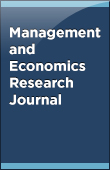


Interprofessional collaboration in higher learning education is widely acclaimed as a critical prerequisite to achieving greater quality and coherence in the facilitation of teaching and learning. The COVID-19 pandemic not only presented higher education with challenges but also allowed all academics to rethink the assumptions about teaching and learning strategies that promote student engagement and academic success across the faculties. Interprofessional reflection is important because it provides opportunities for innovation and new teaching-learning strategies that meet the current climate of higher learning, which promotes student engagement and academic success. The aim is to explore and synthesise literature regarding effective teaching and learning strategies that encourage student engagement and academic success across faculties in higher education. Arksey and O'Malley's five-stage framework served as the basis for the scoping review adopted by the review. Three databases were searched for sources: CINHAL, Scopus, and Medline. Only English full-text written articles across various research designs published between 2016-2023 were part of the inclusion criteria for the review. As a result, four themes emerged: the use of technology as a teaching and learning modality, work-integrated learning for theory practice integration, university teacher-centric approach, and student-centric approach. In conclusion, across faculties, there is a focus on integrating technology in the teaching and learning process, using various pedagogies to meet the needs of different students. Moreover, there is a need to encourage educators to adopt a growth mindset, involving students actively in the learning process. This approach will encourage students to develop critical thinking, become self-directed learners, and fully engage within their academic communities.
Read Article